PBS News: November 5-11, 2019
BBC News: Vaping nearly killed me, says British teenager, and Zimbabwean Manners Mukuwiri recycles rubbish into art
TED Talks: Hans Block and Moritz Riesewieck the price of a clean internet, Claire Wardle How you can help transform the internet into a place of trust, and Misha Glenny Hire the hackers,
Unexplained Mysteries: 5 Mind Blowing NASA Discoveries Made In 2019
My Modern Met: Striking Winners of the 2019 Nikon Small World Photomicrography Competition Show the Artistry of Science
Ing’s Peace Project: Shadow of Peace and the International CranioSacral Therapists 2014, Iceland
PBS NewsHour full episode November 11, 2019
Nov 11, 2019 PBS NewsHour
1.47M subscribers
Monday on the NewsHour, embattled Bolivian President Evo Morales resigns, leaving the country with a vacuum of power. Plus: Violence grips Hong Kong protests, an impeachment inquiry update, how Rudy Giuliani became involved with Ukraine, Politics Monday with Amy Walter and Tamara Keith, the Supreme Court takes up DACA “Dreamers,” rural arts in Minnesota and a Veterans Day commemoration. Stream your PBS favorites with the PBS app: https://to.pbs.org/2Jb8twG Find more from PBS NewsHour at https://www.pbs.org/newshour Subscribe to our YouTube channel: https://bit.ly/2HfsCD6 Follow us: Facebook: https://www.pbs.org/newshour Twitter: https://www.twitter.com/newshour Instagram: https://www.instagram.com/newshour Snapchat: @pbsnews Subscribe: PBS NewsHour podcasts: https://www.pbs.org/newshour/podcasts Newsletters: https://www.pbs.org/newshour/subscribe
Category News & Politics
PBS NewsHour Weekend full episode November 10, 2019
Nov 10, 2019 PBS NewsHour
On this edition for Sunday, November 10, three officials will testify in public hearings this week as part of the impeachment inquiry, and humanitarian workers along the U.S.-Mexico border face prosecution under federal law for helping undocumented migrants. Megan Thompson anchors from New York. Stream your PBS favorites with the PBS app: https://to.pbs.org/2Jb8twG Find more from PBS NewsHour at https://www.pbs.org/newshour Subscribe to our YouTube channel: https://bit.ly/2HfsCD6
PBS NewsHour Weekend full episode November 9, 2019
Nov 9, 2019 PBS NewsHour
On this edition for Saturday, November 9, Republicans release their witness wishlist, why Rock and Roll Hall of Famer Graham Nash is performing his lesser-known tracks, and Marie Kondo’s tidying tricks for kids. Megan Thompson anchors from New York. Stream your PBS favorites with the PBS app: https://to.pbs.org/2Jb8twG Find more from PBS NewsHour at https://www.pbs.org/newshour Subscribe to our YouTube channel: https://bit.ly/2HfsCD6
PBS NewsHour full episode November 8, 2019
Nov 8, 2019 PBS NewsHour
Friday on the NewsHour, House committees release transcripts from two more witnesses in the impeachment inquiry — and President Trump expresses anger toward the whistleblower. Plus: The 30th anniversary of the Berlin Wall’s collapse, Mark Shields and David Brooks on the week’s political news, a brief but spectacular take on comedy and the year’s blockbuster Leonardo da Vinci exhibition. WATCH TODAY’S SEGMENTS: How depositions link Mulvaney to Ukraine impeachment saga https://youtu.be/Km8TDlhoUGg News Wrap: Anonymous staffer’s book says Trump unfit to lead https://youtu.be/0qQHD_IvDEk 30 years after Berlin Wall, why German divisions remain https://youtu.be/zdif8sKubJM Shields and Brooks on impeachment hearings, state elections https://youtu.be/e664ih4ByQ8 Scott Aukerman on the origins of ‘Between Two Ferns’ https://youtu.be/UQQGS7TJCIg Louvre exhibition showcases da Vinci’s ‘endless curiosity’ https://youtu.be/eblCEzB0M0c Stream your PBS favorites with the PBS app: https://to.pbs.org/2Jb8twG Find more from PBS NewsHour at https://www.pbs.org/newshour Subscribe to our YouTube channel: https://bit.ly/2HfsCD6
PBS NewsHour full episode November 7, 2019
Nov 7, 2019 PBS NewsHour
1.46M subscribers
Thursday on the NewsHour, how far did President Trump’s personal attorney, Rudy Giuliani, go to circumvent normal U.S. diplomatic channels with Ukraine? Plus: Saudi Arabia uses Twitter to target dissent, California fire fallout for utility PG&E, the latest on the health care marketplace, privacy issues around DNA testing, toxic pollution over India and Jane Fonda’s climate change crusade. Stream your PBS favorites with the PBS app: https://to.pbs.org/2Jb8twG Find more from PBS NewsHour at https://www.pbs.org/newshour Subscribe to our YouTube channel: https://bit.ly/2HfsCD6
PBS NewsHour full episode November 6, 2019
Nov 6, 2019 PBS NewsHour
Wednesday on the NewsHour, election results from high-profile races in Kentucky, Mississippi and Virginia. Plus: The latest revelations from the impeachment inquiry, a conversation with Mayor Pete Buttigieg, the risks and benefits of genetic genealogy in solving crimes, the launch of NewsHour’s Broken Justice podcast and Ben Crump’s new book about the racist flaws of American criminal justice. Stream your PBS favorites with the PBS app: https://to.pbs.org/2Jb8twG Find more from PBS NewsHour at https://www.pbs.org/newshour Subscribe to our YouTube channel: https://bit.ly/2HfsCD6
PBS NewsHour full episode November 5, 2019
Nov 5, 2019 PBS NewsHour
Tuesday on the NewsHour, transcripts are released from the testimonies of two figures central to the impeachment inquiry. Plus: Analysis of and reaction to the newly released transcripts, U.S. withdrawal from the Paris climate deal, criminal justice reform in Oklahoma, standardized tests in higher education admissions, rejecting white supremacy and a new film from actor and director Edward Norton. Stream your PBS favorites with the PBS app: https://to.pbs.org/2Jb8twG Find more from PBS NewsHour at https://www.pbs.org/newshour Subscribe to our YouTube channel: https://bit.ly/2HfsCD6
https://www.bbc.com/news/health-50377256
Vaping nearly killed me, says British teenager
By James Gallagher Health and science correspondent
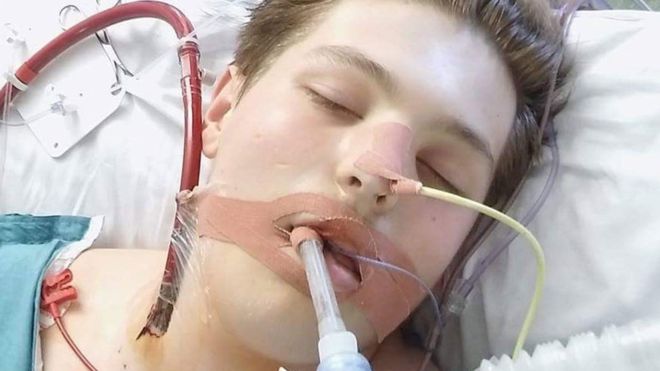
Image copyright Ewan Fisher
A teenage boy nearly died after vaping caused a catastrophic reaction in his lungs, doctors in Nottingham say.
Ewan Fisher was connected to an artificial lung to keep him alive after his own lungs failed and he could not breathe.
Ewan told BBC News e-cigarettes had “basically ruined me” and urged other young people not to vape.
His doctors say vaping is “not safe”, although health bodies in the UK say it is 95% safer than tobacco.
Listen: Beyond Today – Can vaping kill you?
What happened?
Ewan started vaping in early 2017. He was 16 at the time and wanted to quit smoking to improve his boxing.
Despite being under age, he said, “it was easy” to buy either cigarettes or e-cigarettes.
In May that year, Ewan was finding it harder and harder to breathe.
His mother took Ewan to accident and emergency on the night before his GCSE exams, because he was coughing and choking in his sleep.
His lungs were failing and he very quickly ended up on life-support in intensive care in Queen’s Medical Centre in Nottingham.
“I thought I was going to die,” Ewan told BBC News.
Ewan was getting worse. Even ventilation could not get enough oxygen into his body and his life was in the balance.
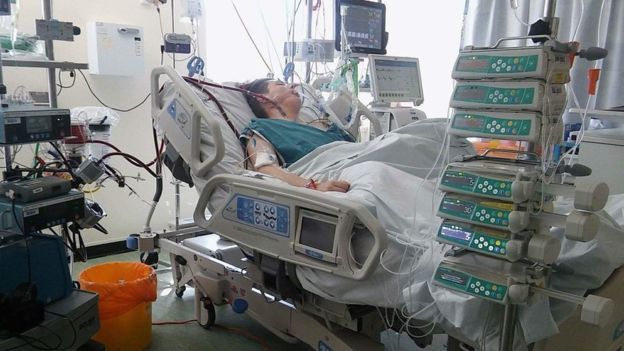
Image copyright Ewan Fisher Image caption Ewan was attached to an ECMO machine to keep him alive
He was taken to Leicester and attached to an artificial lung or ECMO (extra-corporeal membrane oxygenation) machine.
“This machine saved my life,” he said.
Large tubes took blood out of Ewan, removed the carbon dioxide, added oxygen and pumped the blood back into his body.
“He had very serious respiratory failure, he had to go to ECMO and that is a very big deal,” Dr Jayesh Bhatt, a consultant at Nottingham University Hospitals, told BBC News.
“He got as ill as anyone can get.”
The case – from May 2017 – has just come to light in the journal Archives of Disease in Childhood.
How is Ewan now?
Ewan, who is 19 on Tuesday, had a long recovery. It was six months before he was properly up and, on his feet, again.
“I’m still not back to normal, I’d say 75-80%, it’s in the last six months that I’m feeling a bit stronger in myself,” he said.
“Vaping has basically ruined me, I try to tell everyone and they think I’m being stupid, I tell my mates and they don’t listen.
“They still do it, they all still vape, but they’ve seen what I’ve been through.
“Is it worth risking your life for smoking e-cigs?
“I don’t want you to end up like me and I don’t want you to be dead, I wouldn’t wish [that] on anyone.”
Ewan also fears being around other vapers – everywhere from the pub to High Street – could damage his lungs again.
For more information please visit the following link:
https://www.bbc.com/news/health-50377256
Millions of images and videos are uploaded to the internet each day, yet we rarely see shocking and disturbing content in our social media feeds. Who’s keeping the internet “clean” for us? In this eye-opening talk, documentarians Hans Block and Moritz Riesewieck take us inside the shadowy world of online content moderators — the people contracted by major platforms like Facebook, Twitter and Google to rid the internet of toxic material. Learn more about the psychological impact of this kind of work — and how “digital cleaning” influences what all of us see and think.
This talk was presented to a local audience at TEDxCERN, an independent event. TED’s editors chose to feature it for you.
About the speakers
Hans Block · Filmmaker, theater director, musician
Moritz Riesewieck · Author, scriptwriter, theater and film director
More Resources
Hans Block and Moritz Riesewieck
Gebrueder Beetz Filmproduktion (2018)
Take Action participate
Support the BPO Industry Employees Network, which advocates for the rights of Filipino clickworkers.
learn
Learn more about the fight for digital rights.
About TEDx
TEDx was created in the spirit of TED’s mission, “ideas worth spreading.” It supports independent organizers who want to create a TED-like event in their own community.
TEDxCERN | November 2018
How can we stop the spread of misleading, sometimes dangerous content while maintaining an internet with freedom of expression at its core? Misinformation expert Claire Wardle explores the new challenges of our polluted online environment and maps out a plan to transform the internet into a place of trust — with the help everyday users. “Together, let’s rebuild our information commons,” she says.
This talk was presented at an official TED conference, and was featured by our editors on the home page.
About the speaker
Claire Wardle · Misinformation expert
Take Action
learn
Subscribe to First Draft’s daily or weekly briefing to keep up to date with news and information about this topic.
learn
Learn more skills to help you navigate the online world.
TED2019 | April 2019
Journalist Andrew Marantz spent three years embedded in the world of internet trolls and social media propagandists, seeking out the people who are propelling fringe talking points into the heart of conversation online and trying to understand how they’re making their ideas spread. Go down the rabbit hole of online propaganda and misinformation — and learn we can start to make the internet less toxic.
This talk was presented at an official TED conference, and was featured by our editors on the home page.
About the speaker
More Resources
Antisocial: Online Extremists, Techno-Utopians, and the Hijacking of the American Conversation
Andrew Marantz
Viking (2019)
Despite multibillion-dollar investments in cybersecurity, one of its root problems has been largely ignored: who are the people who write malicious code? Underworld investigator Misha Glenny profiles several convicted coders from around the world and reaches a startling conclusion.
This talk was presented at an official TED conference, and was featured by our editors on the home page.
About the speaker
Misha Glenny · Underworld investigator
TEDGlobal 2011 | July 2011
5 Mind Blowing NASA Discoveries Made In 2019
May 30, 2019
5 mind blowing NASA discoveries made in 2019. We take a look at these 5 mind blowing NASA discoveries made in 2019. The National Aeronautics and Space Administration has been at the center of a number of public discoveries. So today, here at unexplained mysteries, we will be highlighting the incredible breakthroughs of the National Aeronautics and Space Administration to help show the overwhelming support the agency has provided for the fields of science and technology. Thank you for watching! Thank you to CO.AG for the background music!
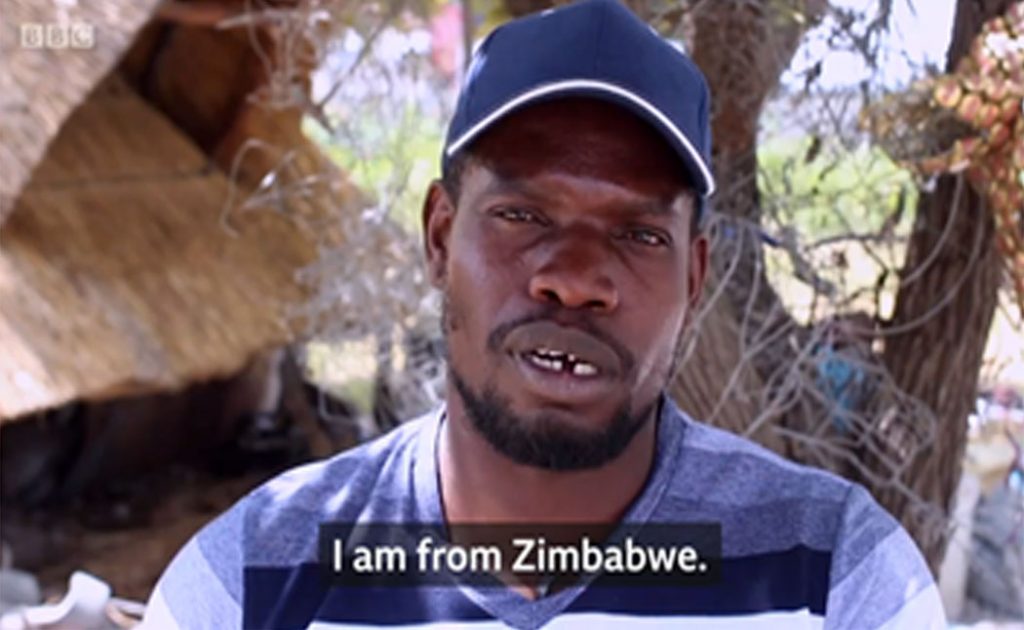
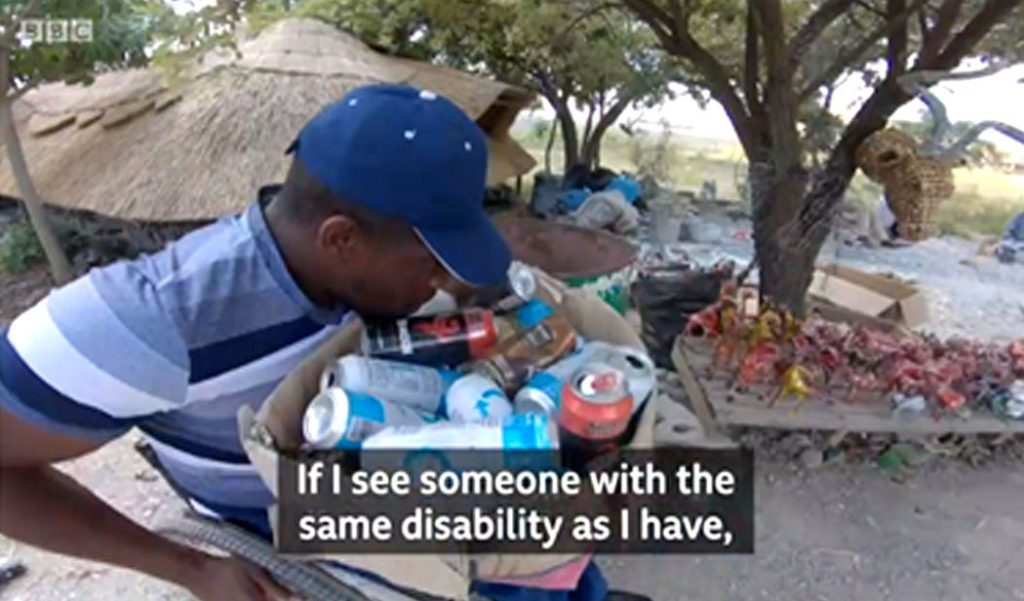
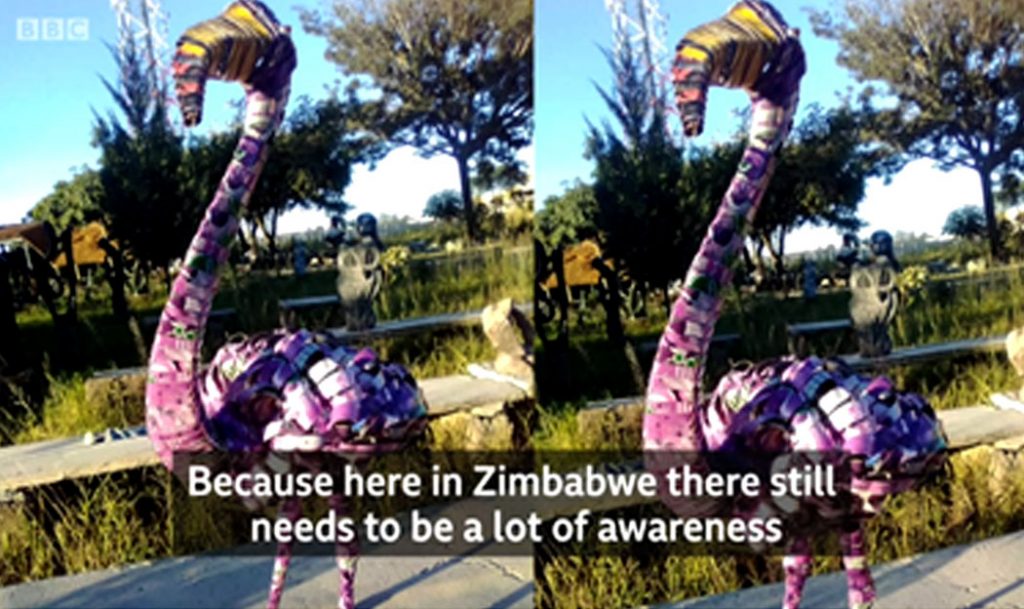
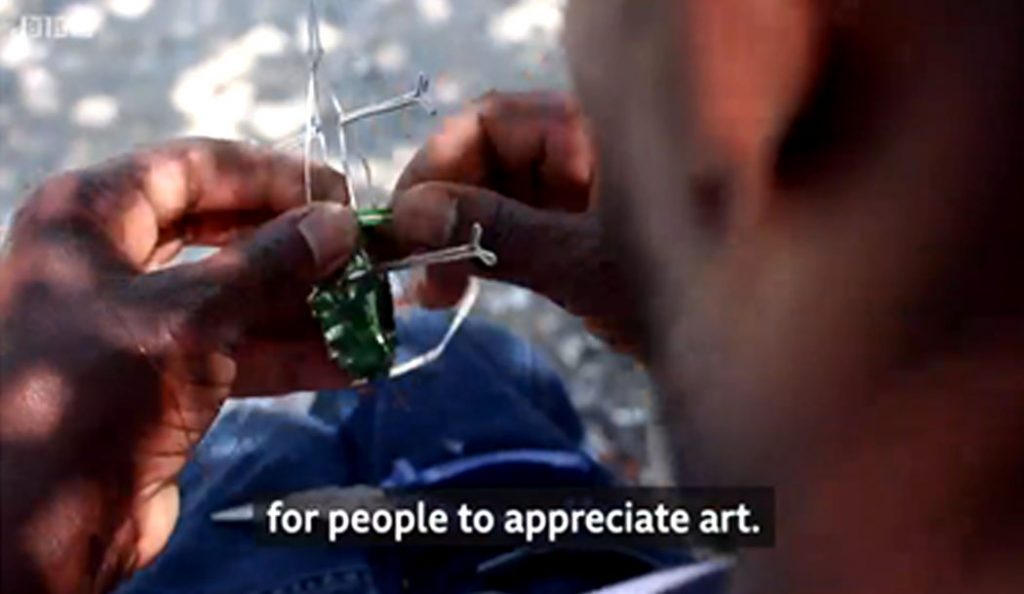
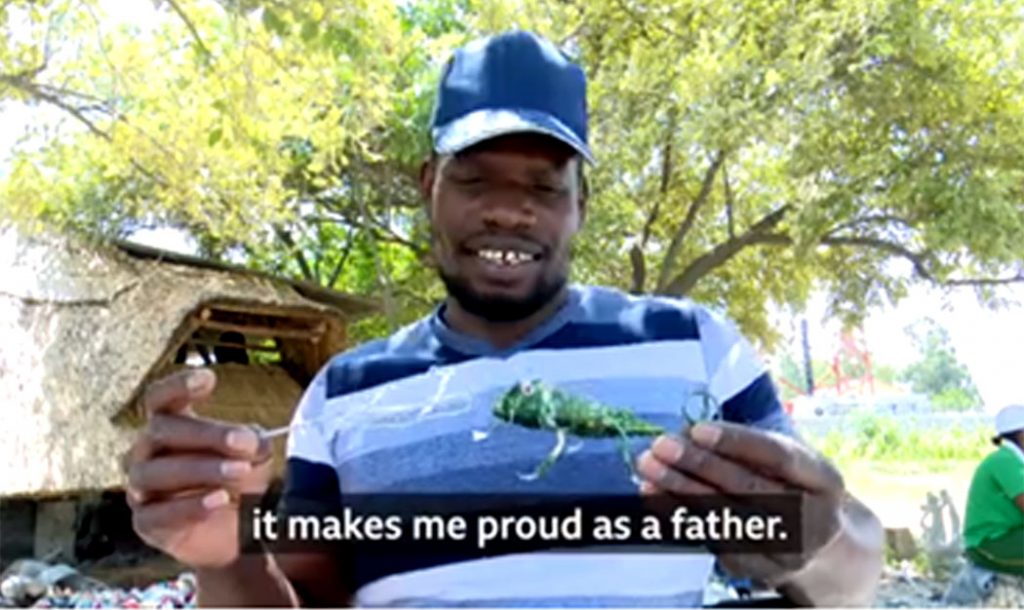
BBC News: “If I see someone with the same disability as I have, I encourage them to show the world what you can do.”
Manners from Zimbabwe makes artwork using thrown away cans.
bbc.in/36NEaqZ (via BBC News Africa
Zimbabwean Manners Mukuwiri recycles rubbish into art
Zimbabwean Manners Mukuwiri was struggling to earn a living until he started turning rubbish into art.
People with disabilities can often find it difficult to find work in the country, but his creations sell for up to $800 (£615) and Manners is hoping to turn his hobby into a full-time career.
Video journalists: Ashley Ogonda and Anthony Irungu. 22 Apr 2019
Striking Winners of the 2019 Nikon Small World Photomicrography Competition Show the Artistry of Science
By Jessica Stewart on October 23, 2019
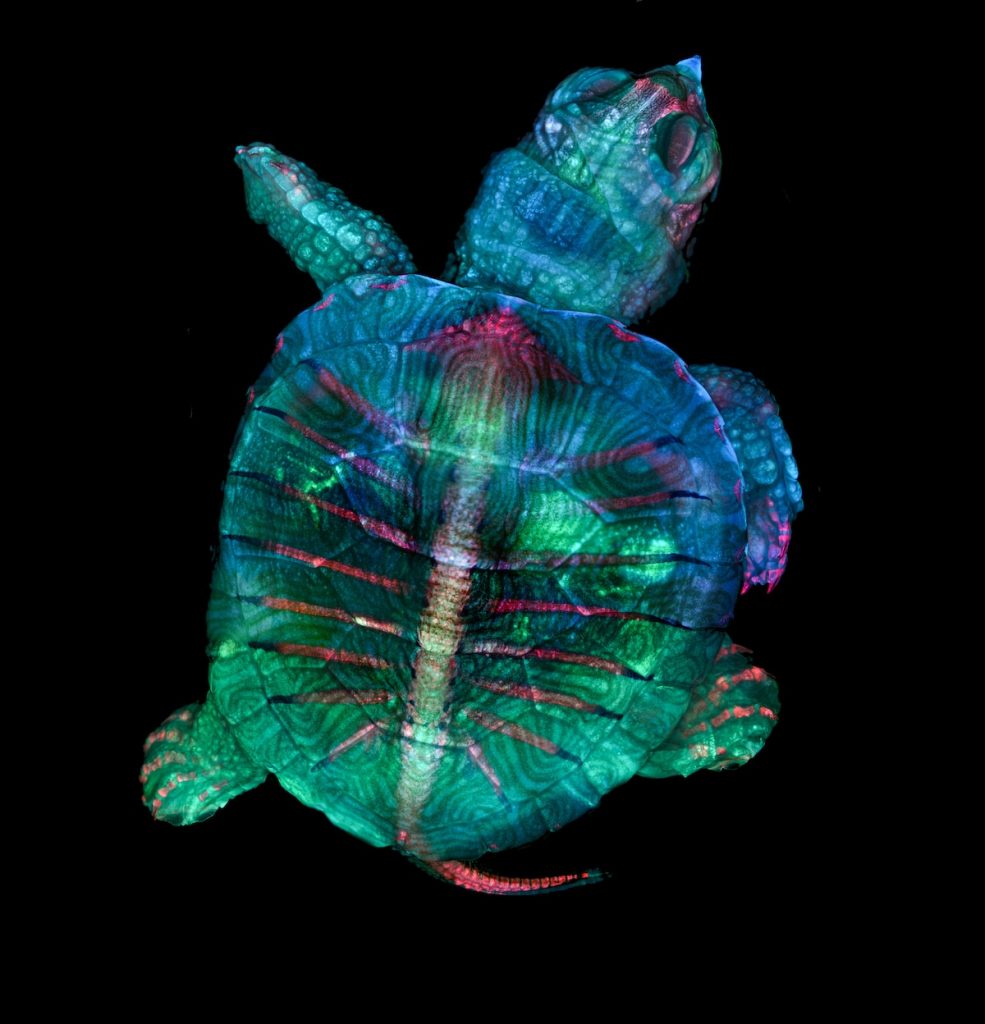
Fluorescent turtle embryo. Teresa Zgoda & Teresa Kugler (Campbell Hall, New York, USA). First Place. Stereomicroscopy, Fluorescence. 5x (Objective Lens Magnification).
For forty-five years, the Nikon Small World Photomicrography Competition has celebrated the microscopic world and, in the process, allowed scientists and enthusiasts to show off the artistry of scientific imagery. Passionate micro-photographers from nearly 100 countries submitted over 2000 stunning pieces of microphotography to the competition. In the end, the expert judging panel narrowed the field to the top 20 images with a photo of a turtle embryo taking the top prize.
The colorful image, taken by microscopy technician Teresa Zgoda and recent university graduate Teresa Kugler, is the result of painstaking work done with precision and skill. Extensive image-stitching was necessary to create the final photograph, as the size and thickness of the turtle embryo meant that only a small portion of the turtle could be photographed at one time. By stacking and stitching together hundreds of photographs, the duo was able to create an image that is both scientifically and artistically satisfying.
“Microscopy lets us zoom in on the smallest organisms and building blocks that comprise our world–giving us a profound appreciation for the small things in life that far too often go unnoticed,” shared Kugler, “It allows me to do science with a purpose.”
The turtle wasn’t the only embryo in the winning selection. Reproduction was a topic for many photographers. An alligator and a California two-spot octopus embryo, as well as a pregnant planktonic crustacean and mosquito larva also joined the top twenty. Away from the animal kingdom, something as simple as a frozen drop of water was transformed into a mesmerizing, abstract photograph. At the same time, a close view of different flora helps us marvel at the beauty and precision of how nature develops.
Whether using focus stacking, image stacking, or confocal microscopy, the techniques employed help these scientists bring their vision to life. And as technology continues to grow and evolve, we can only expect even richer results. Take a look at the rest of the top 20 photos from the 2019 Nikon Small World Photomicrography Competition below and view more finalists via their online gallery.
For 45 years, the Nikon Small World Photomicrography Competition has celebrated the artistry of scientific imagery.
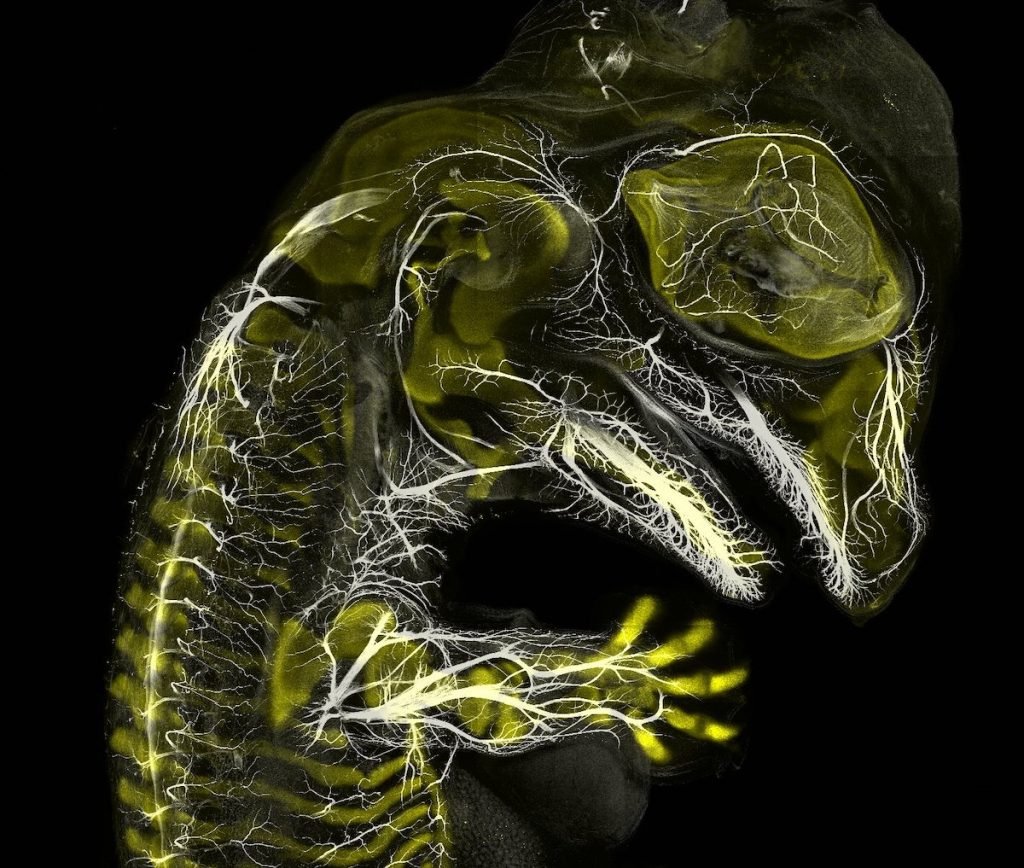
Alligator embryo developing nerves and skeleton. Daniel Smith Paredes & Dr. Bhart-Anjan S. Bhullar (Yale University, Department of Geology and Geophysics, New Haven, Connecticut, USA). Third Place. Immunofluorescence. 10x (Objective Lens Magnification).
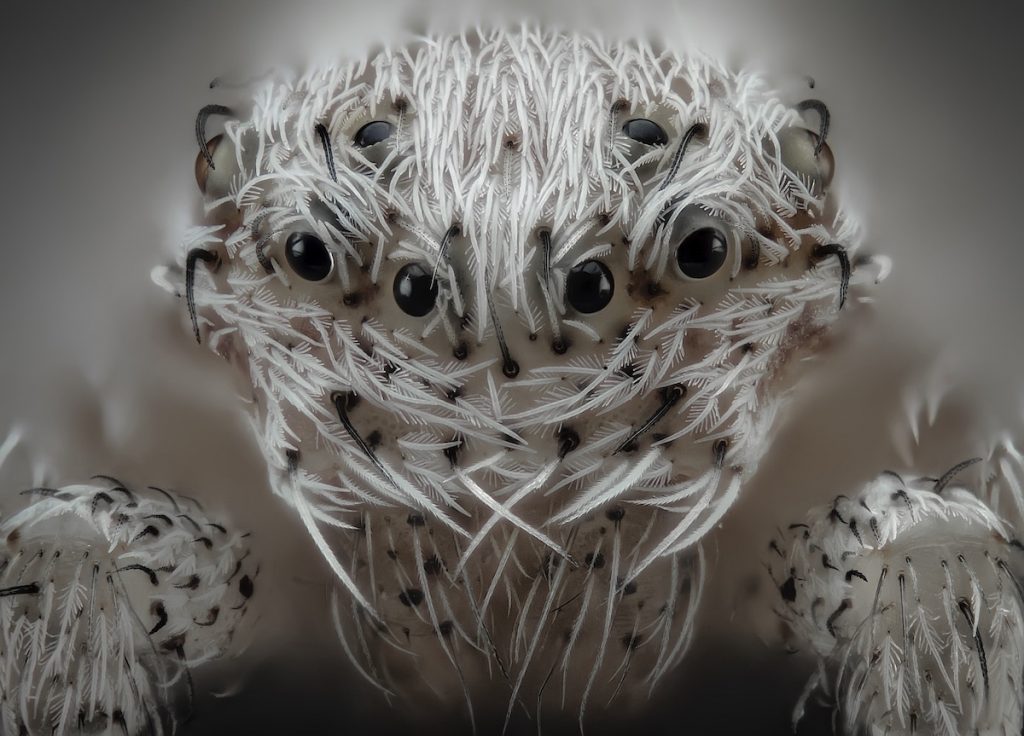
Small white hair spider. Javier Rupérez (Almáchar, Málaga, Spain). Sixth Place. Reflected Light, Image Stacking. 20x (Objective Lens Magnification).
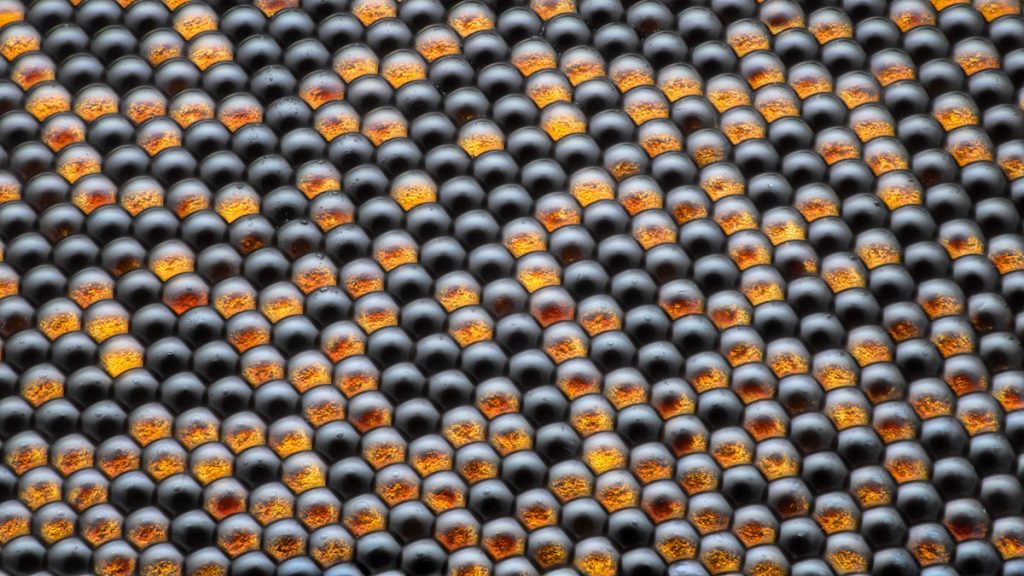
Housefly compound eye pattern. Dr. Razvan Cornel Constantin (Bucharest, Romania). 16th Place. Focus Stacking, Reflected Light. 50x (Objective Lens Magnification).
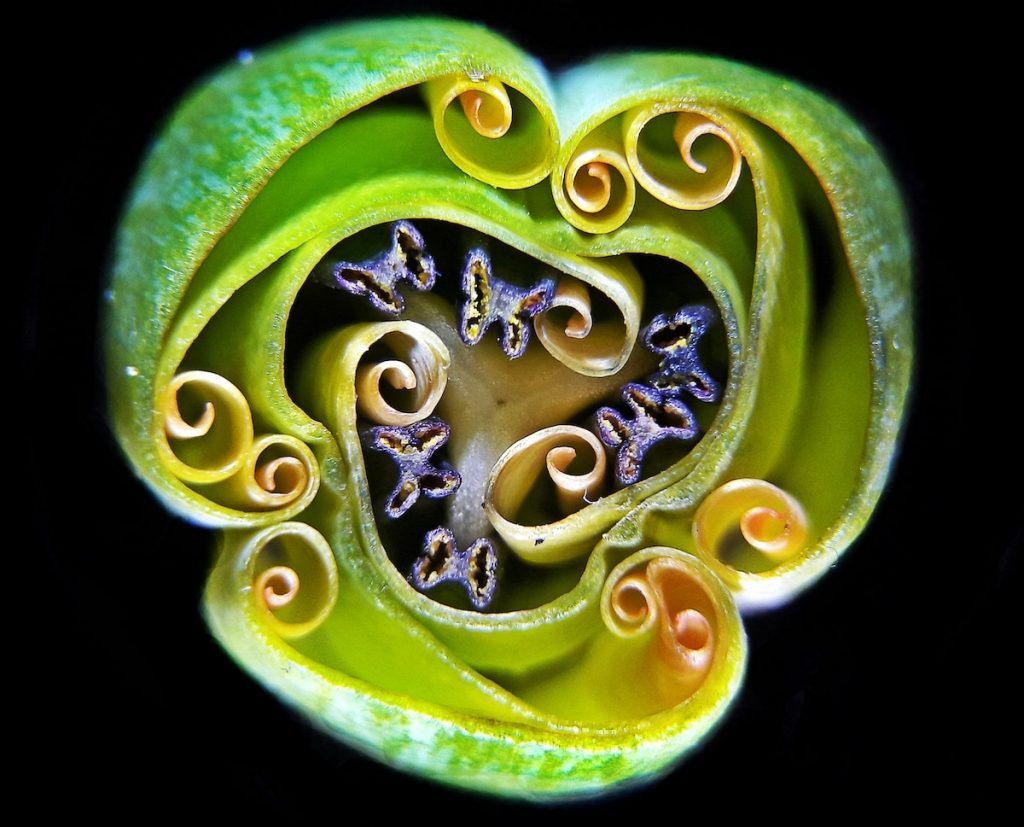
Tulip bud cross section. Andrei Savitsky (Cherkassy, Ukraine). Ninth Place. Reflected Light. 1x (Objective Lens Magnification).
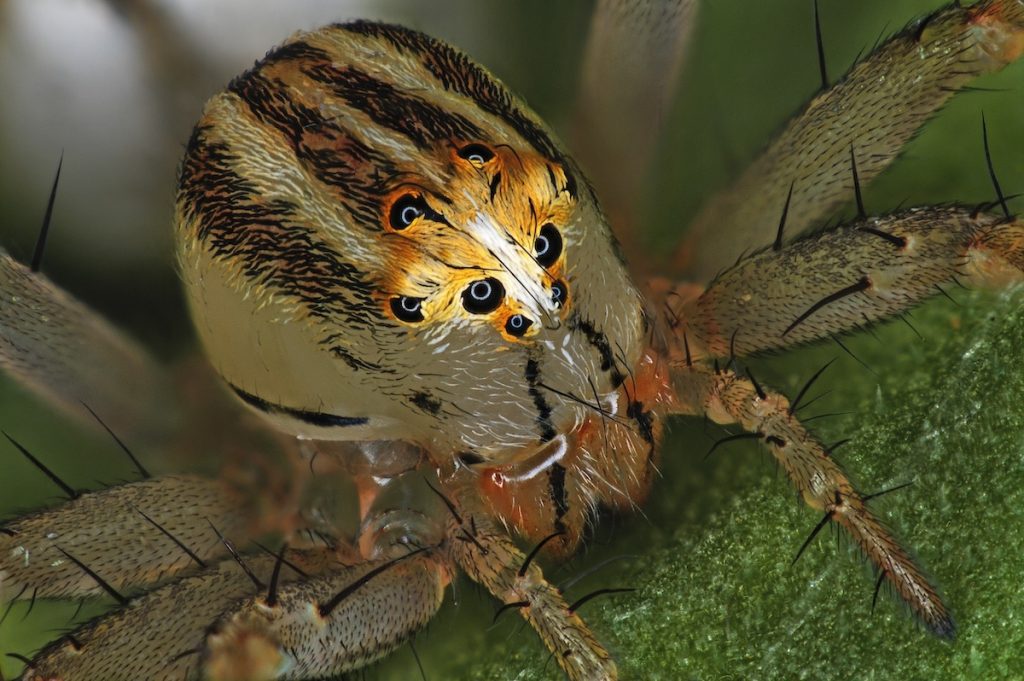
Female Oxyopes dumonti (lynx) spider. Antoine Franck (CIRAD – Agricultural Research for Development, Saint Pierre, Réunion). 14th Place. Focus Stacking. 1x (Objective Lens Magnification).
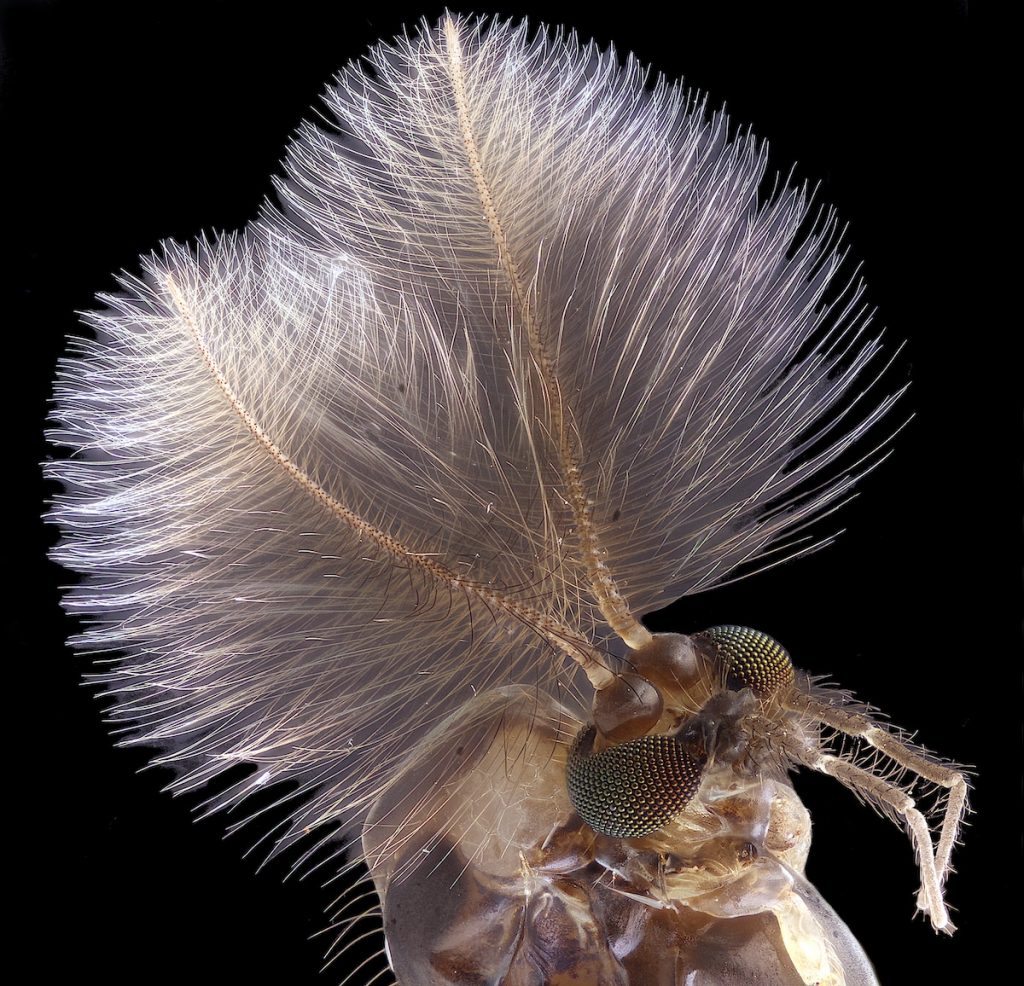
Male mosquito. Jan Rosenboom (Universität Rostock, Rostock, Mecklenburg Vorpommern, Germany). Fourth Place. Focus Stacking. 6.3x (Objective Lens Magnification).
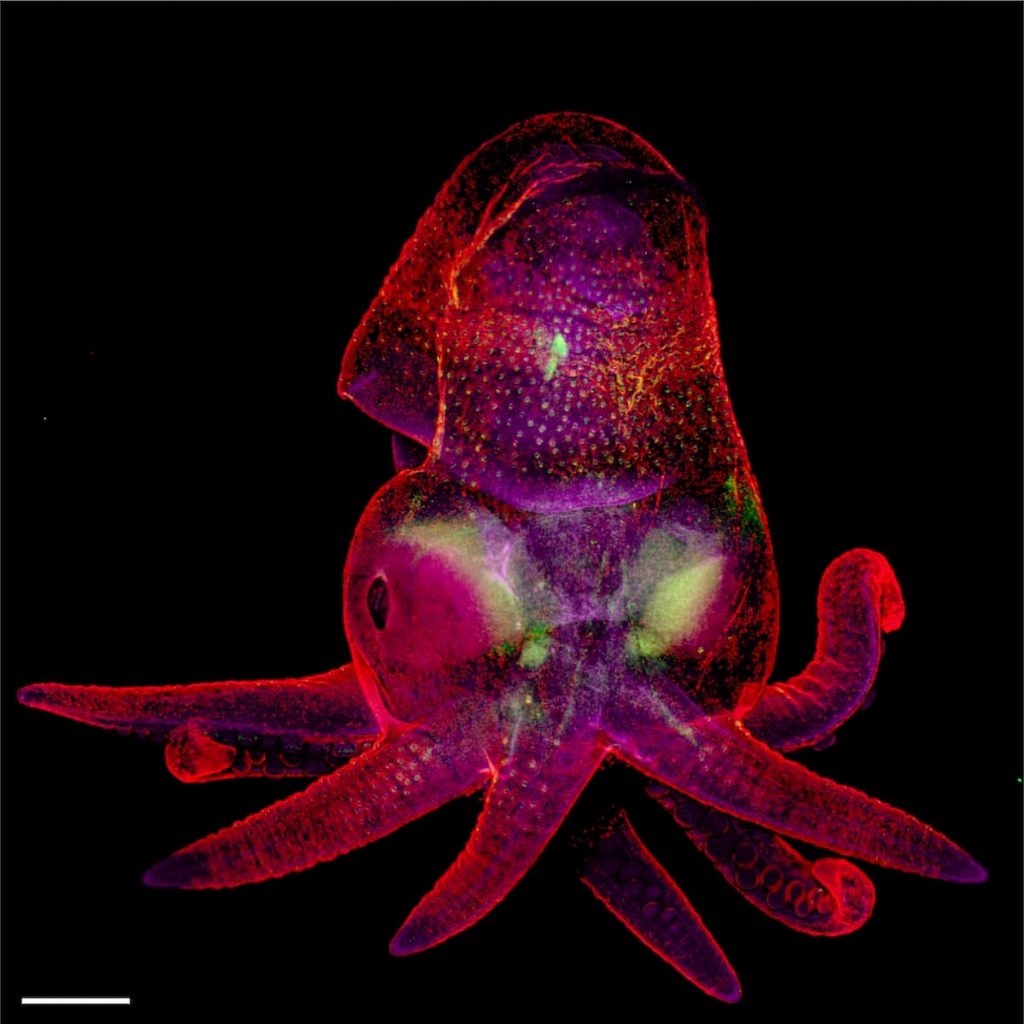
Octopus bimaculoides embryo. Martyna Lukoseviciute & Dr. Carrie Albertin (University of Oxford, Weatherall Institute of Molecular Medicine, Oxford, Oxfordshire, United Kingdom). 19th Place. Confocal, Image Stitching. 5x (Objective Lens Magnification).

Snowflake. Caleb Foster (Caleb Foster Photography, Jericho, Vermont, USA). Fifth Place. Transmitted Light. 4x (Objective Lens Magnification).

Chinese red carnation stamen. Dr. Guillermo López López (Alicante, Spain). Seventh Place. Focus Stacking. 3x (Objective Lens Magnification).
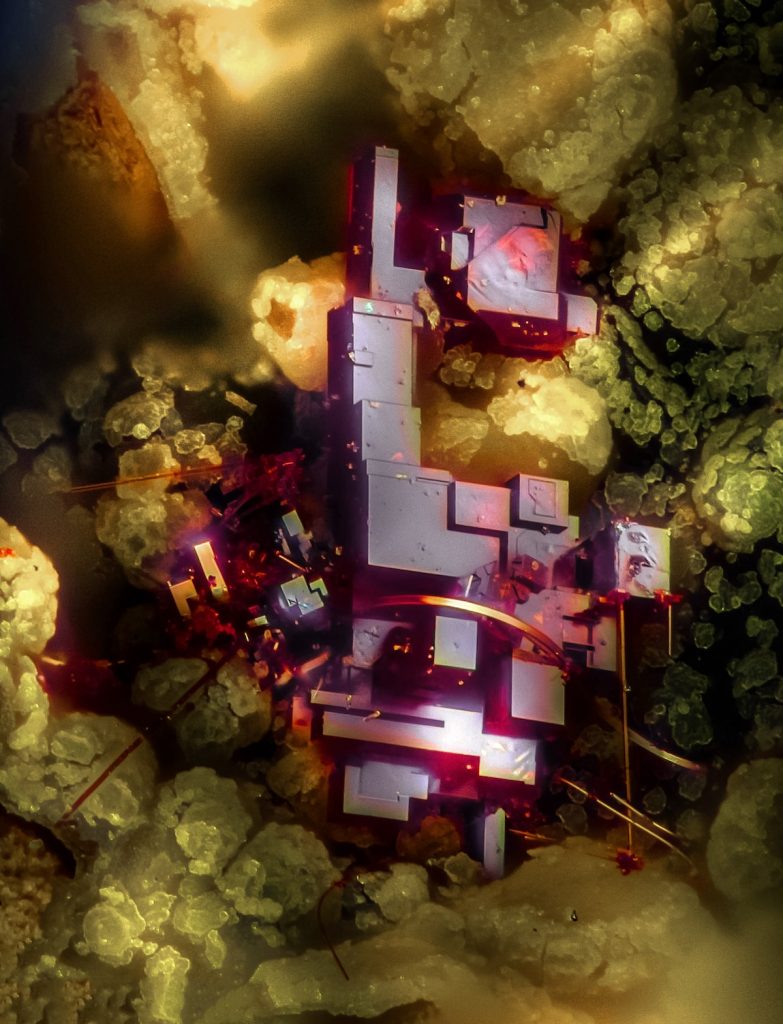
Cuprite (mineral composed of copper oxide). Dr. Emilio Carabajal Márquez (Madrid, Spain). Focus Stacking. 20x (Objective Lens Magnification).
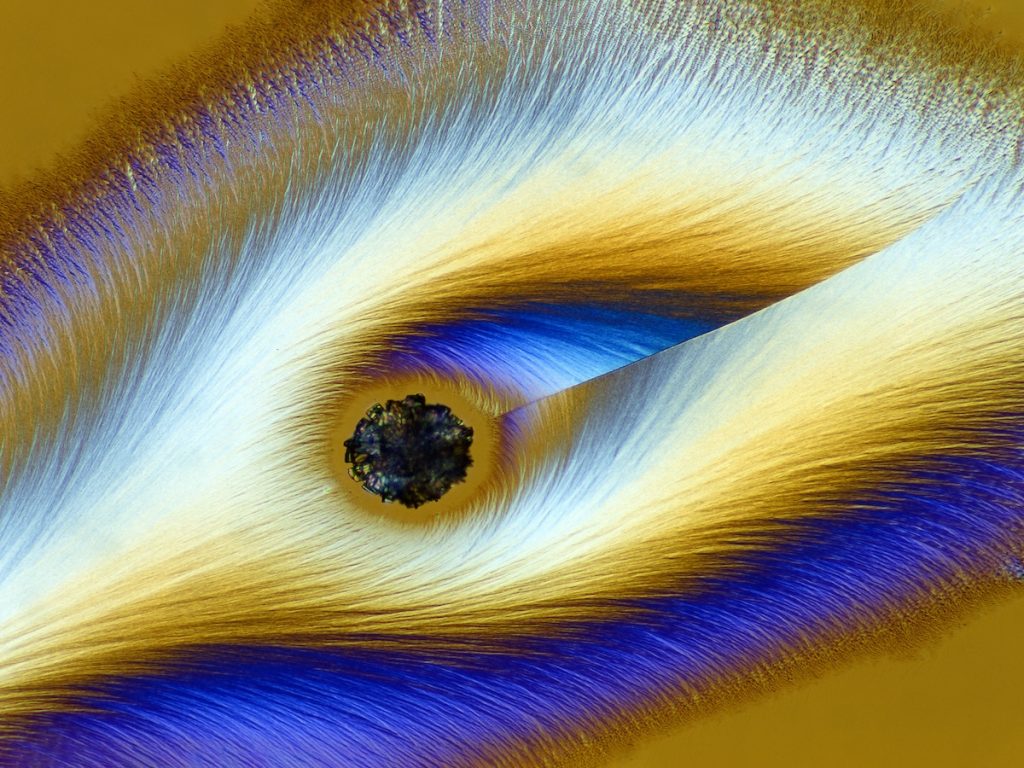
Vitamin C. Karl Deckart (Eckental, Bavaria, Germany). 17th Place. Brightfield, Polarized Light. 4x (Objective Lens Magnification)
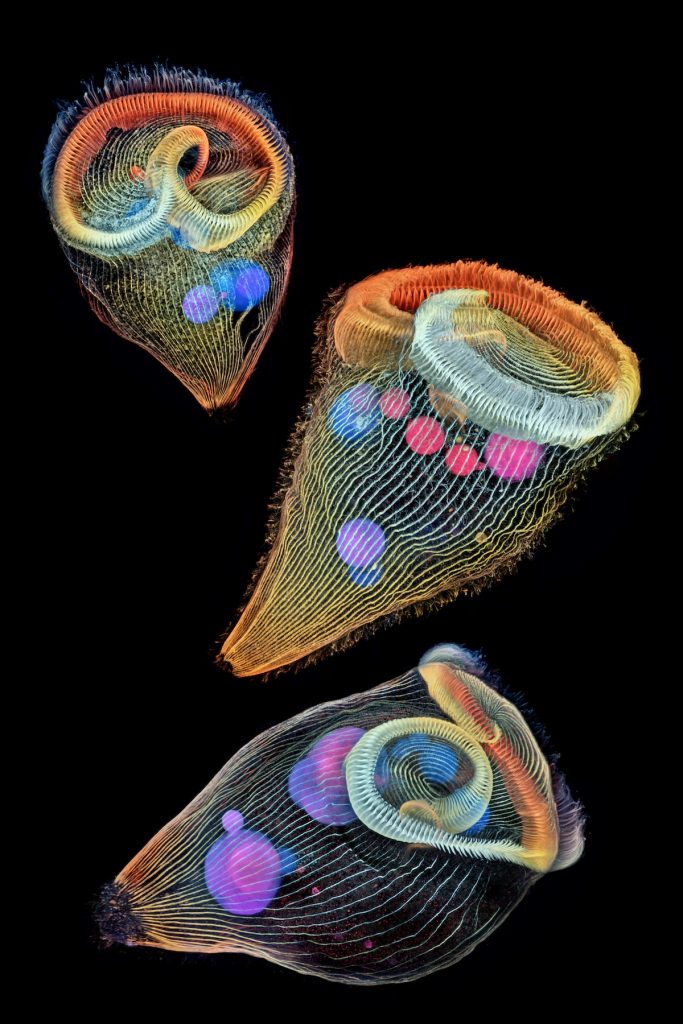
Depth-color coded projections of three stentors (single-cell freshwater protozoans). Dr. Igor Siwanowicz (Howard Hughes Medical Institute (HHMI), Janelia Research Campus, Ashburn, Virginia, USA). Second place. Confocal. 40x (Objective Lens Magnification).

Frozen water droplet. Garzon Christian (Quintin, Cotes-d’Armor, France). Eighth Place. Incident Light. 8x (Objective Lens Magnification).
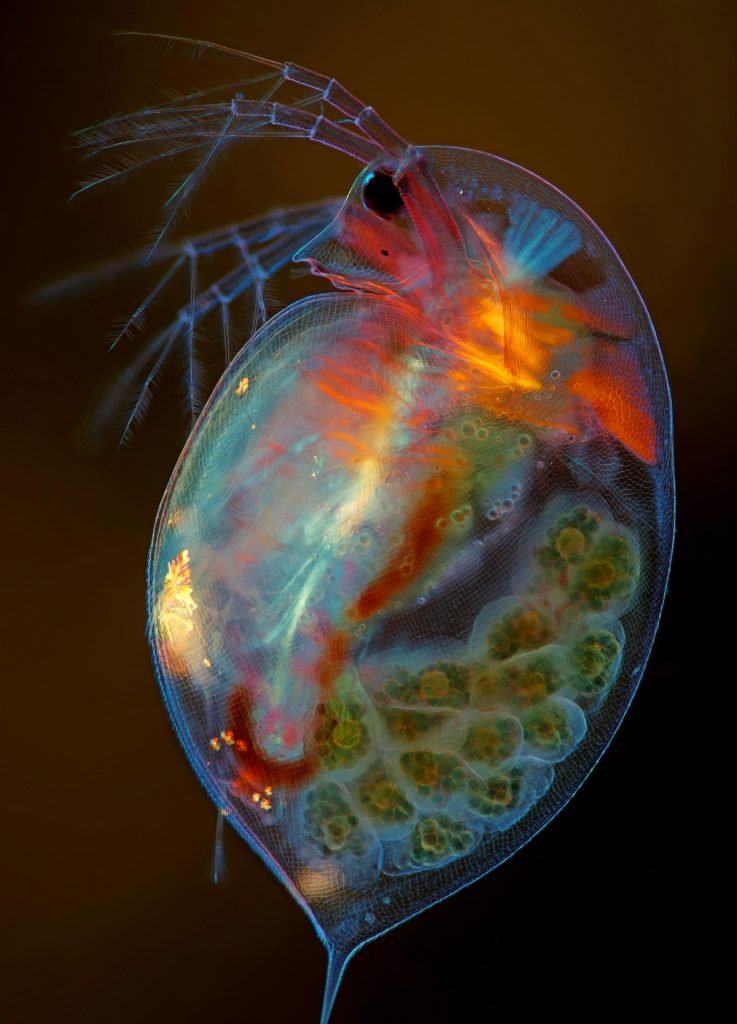
Pregnant Daphnia magna (small planktonic crustacean). Marek Mi? (Marek Mi? Photography, Suwalki, Podlaskie, Poland). 15th Place. Modified Darkfield, Polarized Light, Image Stacking. 4x (Objective Lens Magnification).
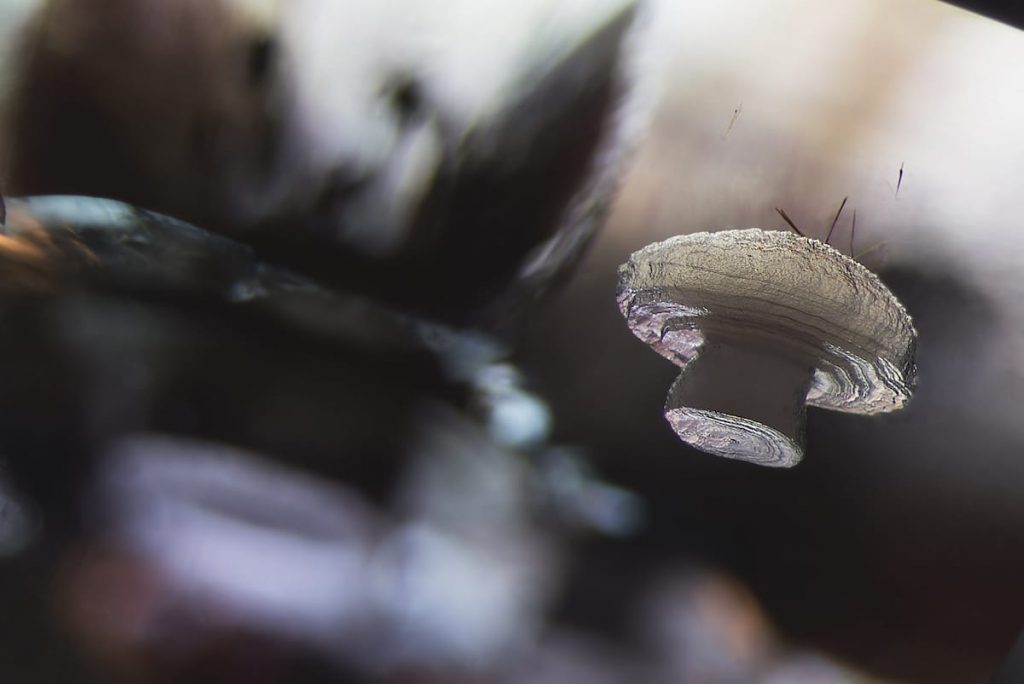
Cristobalite crystal suspended in its quartz mineral host. E. Billie Hughes (Lotus Gemology, Bangkok, Thailand). 18th Place. Darkfield. 40x (Objective Lens Magnification).
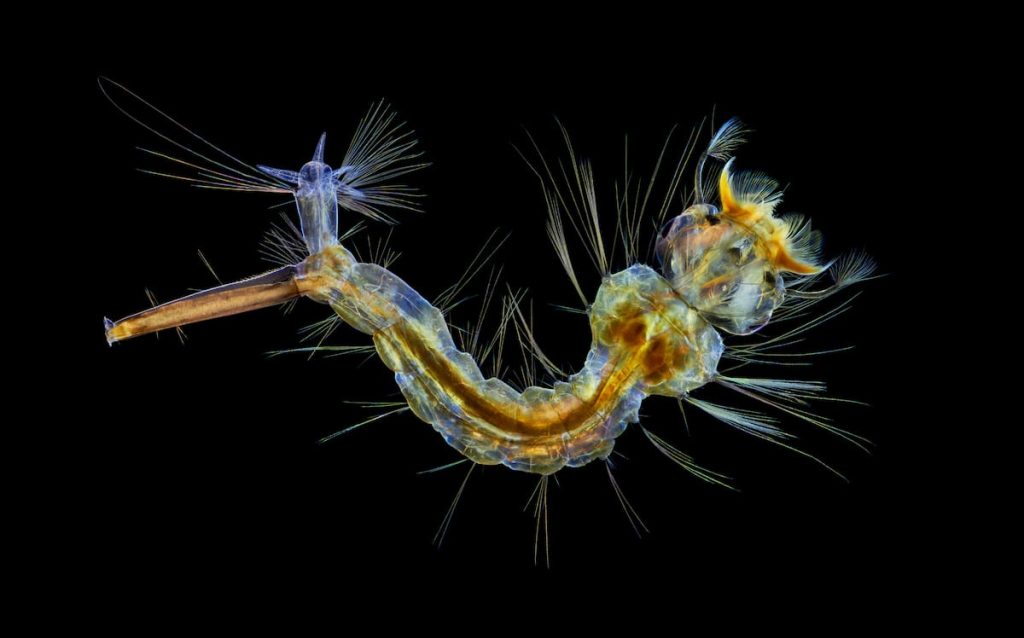
Mosquito larva. Anne Algar (Hounslow, Middlesex, United Kingdom). 12th Place. Darkfield, Polarizing Light, Image Stacking. 4x (Objective Lens Magnification).
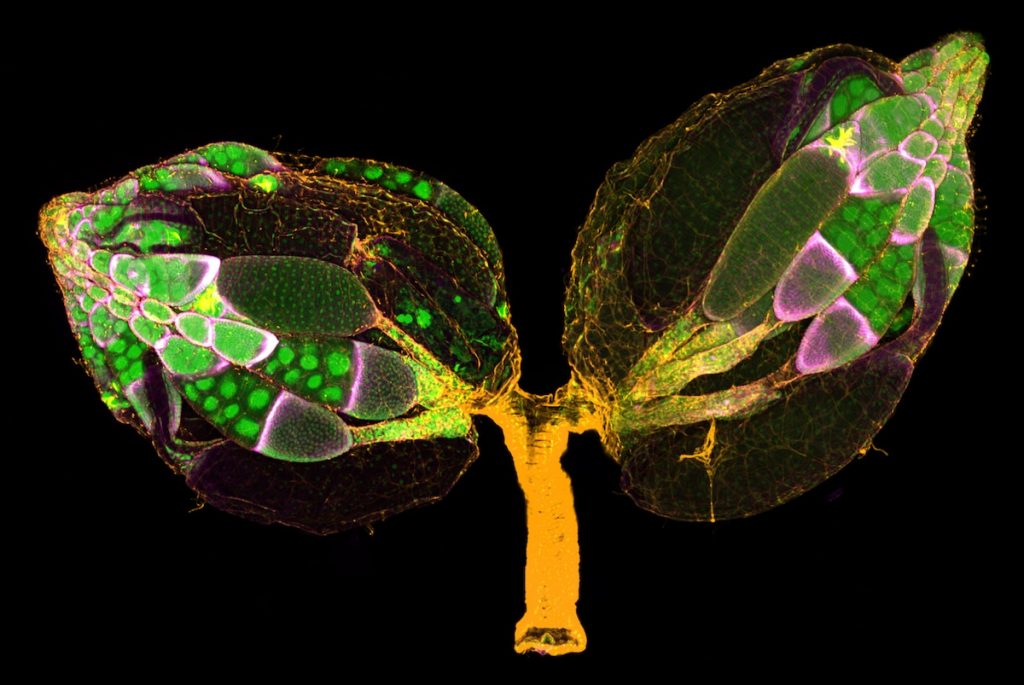
A pair of ovaries from an adult Drosophila female stained for F-actin (yellow) and nuclei (green); follicle cells are marked by GFP (magenta). Dr. Yujun Chen & Dr. Jocelyn McDonald (Kansas State University, Department of Biology, Manhattan, Kansas, USA). 11th Place. Confocal. 10x (Objective Lens Magnification).
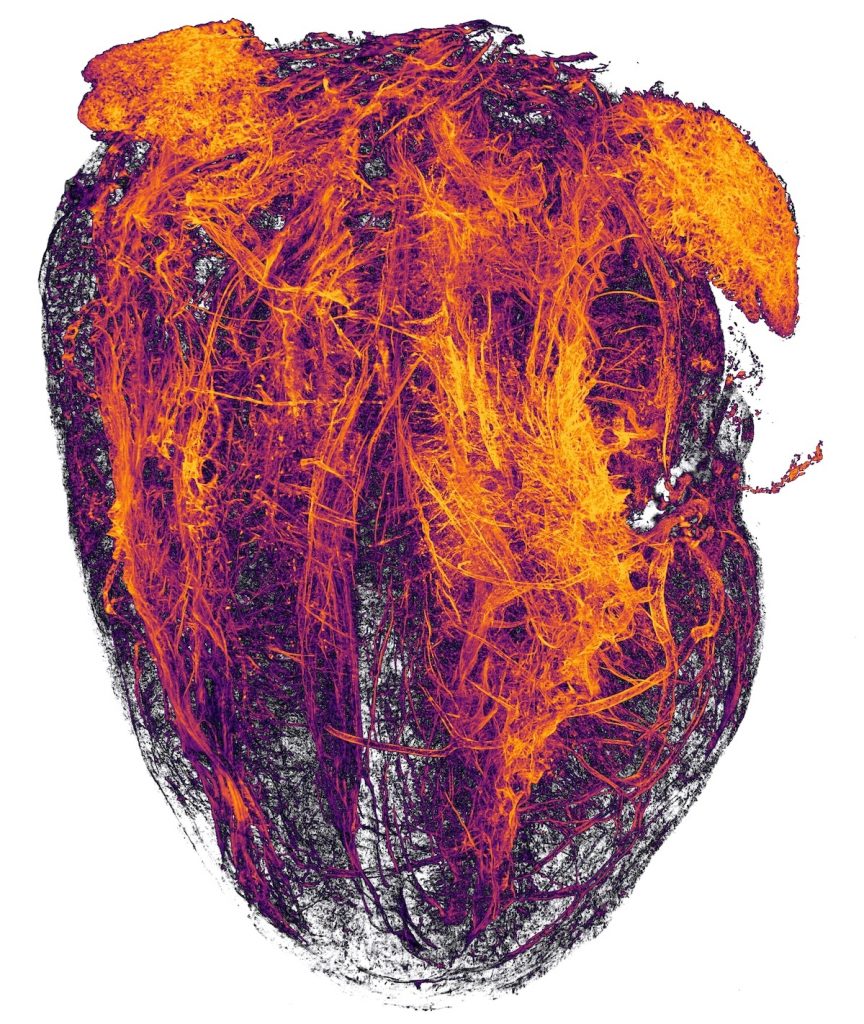
Blood vessels of a murine (mouse) heart following myocardial infarction (heart attack). Simon Merz, Lea Bornemann & Sebastian Korste (University Hospital Essen, Institute for Experimental Immunology & Imaging, Essen, Nordrhein-Westfalen, Germany). 20th Place. Tissue Clearing, Light Sheet Fluorescence Microscopy. 2x (Objective Lens Magnification).
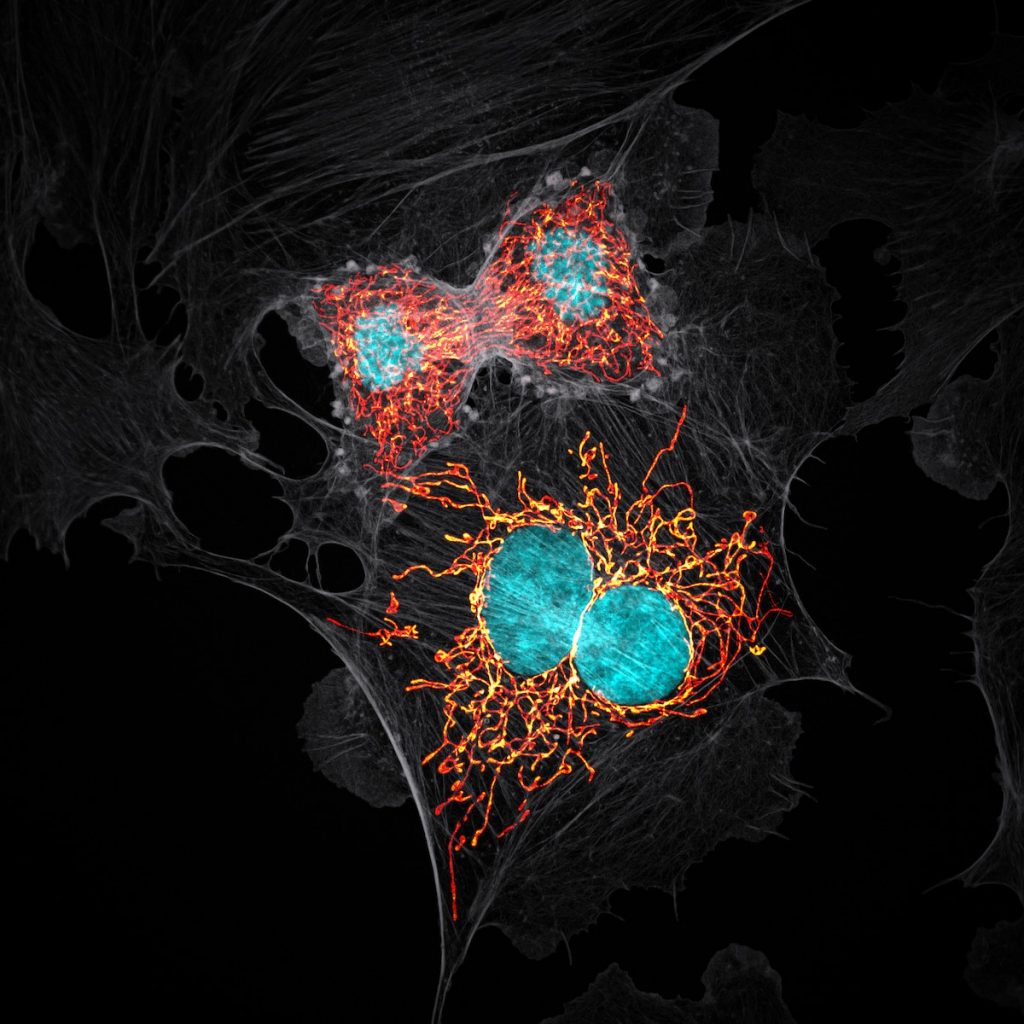
BPAE cells in telophase stage of mitosis. Jason M. Kirk (Baylor College of Medicine, Optical Imaging & Vital Microscopy Core, Houston, Texas, USA). 10th Place. Confocal with Enhanced Resolution. 63x (Objective Lens Magnification).
Nikon Small World: Website | Facebook | Instagram
My Modern Met granted permission to feature photos by Nikon Small World.
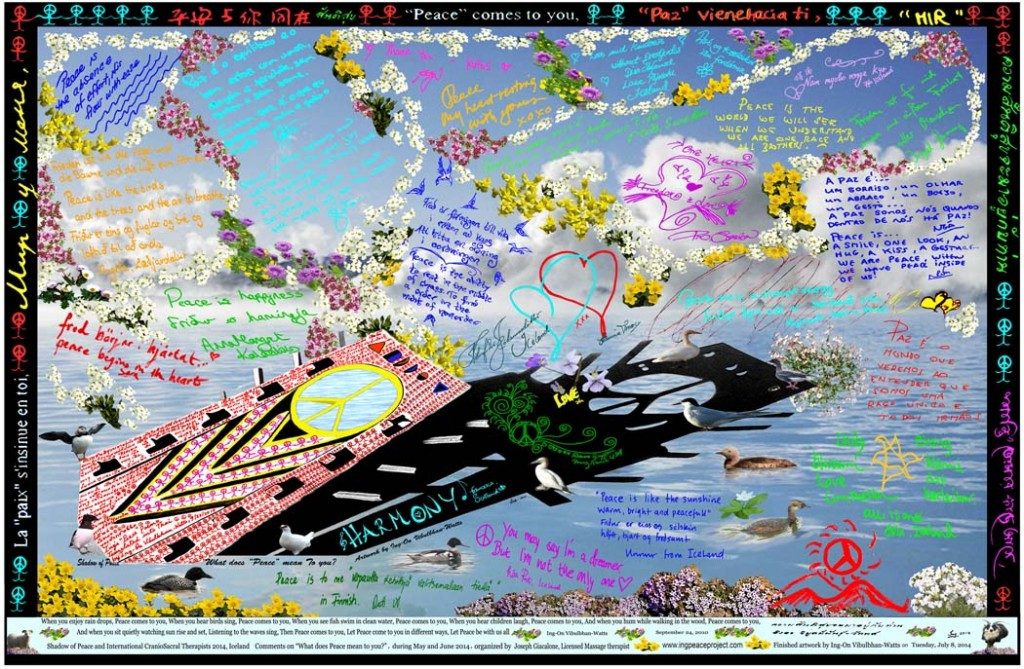
Finished “Peace” artwork 13
Shadow of Peace and the International CranioSacral Therapists 2014, Iceland, comments on “What does Peace mean to you?” on during May and June 2014, organized by Joseph Giacalone Finished artwork, after the written comments by Ing-On Vibulbhan-Watts
Links to the finished Peace Project of the International CranioSacral Therapists 2014, Iceland artwork page:
Leave a Reply